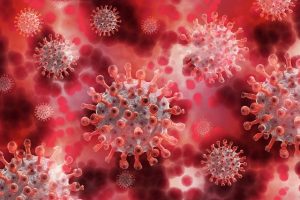The Lancet: Cancer is confirmed to have direct link with alcohol
- Mifepristone: A Safe and Effective Abortion Option Amidst Controversy
- Asbestos Detected in Buildings Damaged in Ukraine: Analyzed by Japanese Company
- New Ocrevus Subcutaneous Injection Therapy Shows Promising Results in Multiple Sclerosis Treatmen
- Dutch Man Infected with COVID-19 for 613 Days Dies: Accumulating Over 50 Virus Mutations
- Engineered Soybeans with Pig Protein: A Promising Alternative or Pandora’s Dish?
- Severe Fever with Thrombocytopenia Syndrome (SFTS): A Tick-Borne Threat with High Mortality
The Lancet: Cancer is confirmed to have direct link with alcohol
- Red Yeast Rice Scare Grips Japan: Over 114 Hospitalized and 5 Deaths
- Long COVID Brain Fog: Blood-Brain Barrier Damage and Persistent Inflammation
- FDA has mandated a top-level black box warning for all marketed CAR-T therapies
- Can people with high blood pressure eat peanuts?
- What is the difference between dopamine and dobutamine?
- How long can the patient live after heart stent surgery?
The Lancet: Cancer is confirmed to have direct link with alcohol.
The Lancet published an article estimating that 741,300 of all new cancer cases worldwide in 2020 were attributed to alcohol consumption, of which 76.7% were among men.
Among the cancer cases caused by alcohol, the cases of esophageal cancer, liver cancer and breast cancer were the most.
The study found that in 740,000 cancer cases:
-
Moderate alcohol consumption (<20 grams per day) contributed to 13.9% of cancer cases;
-
High-risk drinking (20-60 grams per day) caused 39.4% of cancer cases;
-
Alcohol abuse (>60 grams per day) was responsible for 46.7% of cancer cases.
In other words , as long as drinking alcohol, it will lead to a significant increase in the risk of cancer.

Squamous cell carcinoma of the oral cavity, pharynx, larynx, and esophagus
A causal relationship between heavy alcohol consumption and squamous cell carcinoma of the mouth, pharynx, larynx, and esophagus has been noted since the mid-1950s.
Epidemiological studies have shown that heavy drinking has a tumor effect on these tumors, and it is linearly related to the time and amount of drinking.
A carcinogenic effect of alcohol independent of smoking (i.e. non-smokers also had an increased risk of cancer) was first reported in 1961 with a fairly consistent dose-response relationship.
Evidence suggests that anatomical sites most closely associated with alcohol intake, such as the active part of the tongue and hypopharynx, are particularly at high risk.
Esophageal adenocarcinoma
Research on the relationship between alcohol and esophageal adenocarcinoma has been inconclusive.
Some studies have reported that drinking alcohol can increase the risk of esophageal cancer and cardia cancer by 1.5-4.0 times , and studies with larger sample sizes have shown that drinking alcohol is not associated with esophageal adenocarcinoma, and there is no dose-response relationship.
Overall, there is currently no consistent evidence supporting an association between esophageal adenocarcinoma risk and alcohol consumption.
Stomach cancer
There is no consistent evidence that drinking alcohol affects the risk of stomach cancer. Some studies have found no link between alcohol consumption and stomach cancer risk.
Several studies have reported an increased risk of stomach cancer with specific alcoholic beverages: including vodka in Russia, wine in Italy, and hard liquor and beer in Uruguay.
However, the relationship between gastric cancer and alcohol consumption has not yet been established.
Colorectal cancer
Research supports an association between increased alcohol consumption and the risk of colorectal adenoma and adenocarcinoma , and meta-analyses of cohort studies and case-control studies have shown a modestly increased risk of colorectal cancer in a dose-response relationship.
Dietary factors such as low folate intake are thought to increase the risk of colorectal cancer by 2-5 fold, alcohol can adversely affect folate metabolism, alcohol consumption and low folate intake may act synergistically, or alcohol may increase colorectal cancer risk through folate metabolism cancer risk.
Liver cancer
Heavy alcohol consumption increases the risk of HCC. A meta-analysis showed a dose-response relationship between alcohol consumption and the risk of HCC, with a 1.8-fold increased risk of HCC reported for those who drank the most alcohol (i.e., 100 g per day).
Studies have also shown that drinking alcohol is an important risk factor for cirrhosis, and drinking 100 grams of alcohol a day increases the risk of cirrhosis by 27 times.
The most likely mechanism for alcohol-related liver carcinogenesis is through the development of cirrhosis, and alcohol-related cirrhosis may be the most important risk factor for HCC.
Pancreatic cancer
Most studies evaluating the relationship between alcohol and pancreatic cancer have been negative, and some studies have documented an increased risk of alcohol and pancreatic cancer.
The meta-analysis found that while there was no association between alcohol consumption and pancreatic cancer risk, there was an increased risk among heavy drinkers (those who drank four or more drinks per day had a 3-fold increased risk of pancreatic cancer).
Since smoking is an important risk factor for pancreatic cancer, residual confounding factors could not be ruled out in these studies.
A possible mechanism between alcohol consumption and pancreatic cancer is through the development of chronic pancreatitis as a result of alcohol consumption.
Breast cancer
The epidemiological study found an estimated risk of breast cancer of 1.1 for one drink per day, 1.2 for two drinks per day, and 1.2 for three or more drinks per day, compared with nondrinkers The risk estimate is 1.4. An additional 10 grams of alcohol intake per day increased the risk by 7.1%.
Lung cancer
A relationship between alcohol consumption and lung cancer has been postulated, but current evidence is insufficient.
A meta-analysis of alcohol consumption and lung cancer risk found no strong evidence, but an increased risk of lung cancer from heavy drinking cannot be ruled out.
Other cancers
Alcohol does not seem to increase endometrial, bladder, or prostate cancer.
The possible protective effect of alcohol on the risk of ovarian and kidney cancer warrants further study.
A pooled analysis of case-control studies of non-Hodgkin’s lymphoma suggests a reduced risk among alcohol drinkers.
Alcohol consumption is one of the most important known causes of human cancer after smoking, chronic infection, and obesity. With the exception of aflatoxins, no dietary factor has such strong evidence of carcinogenicity.
Evidence suggests that the effects of alcohol are regulated by polymorphisms in genes encoding alcohol-metabolizing enzymes such as alcohol dehydrogenase, acetaldehyde dehydrogenase, and cytochrome P450, folate metabolism, and DNA repair. Possible events include: Genotoxic effects of acetaldehyde, a major metabolite of ethanol; elevated concentrations of estrogen, which is important for breast cancer development; role as a solvent for tobacco carcinogens; production of reactive oxygen and nitrogen; changes in folate metabolism.
Studies have shown that humans develop DNA damage after heavy alcohol consumption, which may be caused by acetaldehyde.
Heavy alcohol consumption may cause nutrient deficiencies, reduce intake of micronutrient-rich foods, impair intestinal absorption, and alter metabolic pathways.
The most relevant effect appears to be folate metabolism , which alters DNA methylation, thereby controlling genes and their potential role in carcinogenesis.
Alcohol may affect the intake, absorption, and metabolism of vitamin B12 and vitamin B6 , leading to further changes in DNA methylation pathways.
Vitamin A deficiency has also been implicated as an alcohol-mediated carcinogenic mechanism. People who drink a lot of alcohol have lower serum vitamin A and carotene concentrations, and long-term drinking will change the metabolism of vitamin A.
Alcohol consumption reduces immune surveillance, thereby favoring cancer development and metastatic potential.
The mechanisms by which alcoholic beverages produce carcinogenic effects are not fully understood and may vary by target organ; other carcinogens also play a role in many sites.
Pure ethanol is not a carcinogen in animal experiments, so alcoholic beverages may be the solvent through which carcinogens permeate through the mucous membranes of the upper aerodigestive organs.
Although this mechanism could explain the synergistic effect of smoking and alcohol consumption, it could not explain the increased risk in never smokers.
references:
https://www.thelancet.com/journals/lanonc/article/PIIS1470-2045(21)00279-5/fulltext
The Lancet: Cancer is confirmed to have direct link with alcohol
(source:internet, reference only)
Disclaimer of medicaltrend.org
Important Note: The information provided is for informational purposes only and should not be considered as medical advice.



